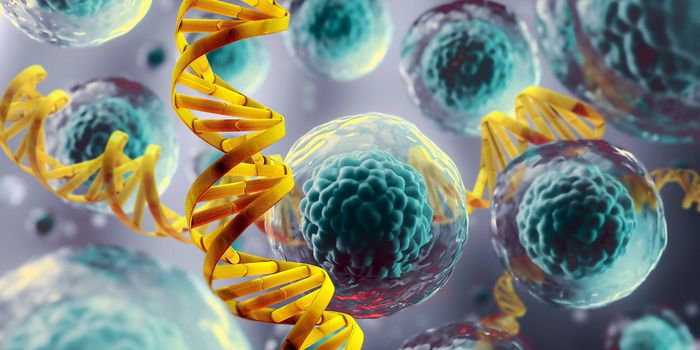New Drug Holds Promise for Severe Form of Fatty Liver Disease

Nonalcoholic steatohepatitis (NASH) is the second stage of nonalcoholic fatty liver disease (NAFLD). Unlike NAFLD, which causes a build-up of fat in the liver that can be reversed via a healthy diet and exercise, NASH causes permanent scarring and inflammation of the liver. Estimates state that 32% of the global population have NAFLD, and up to 6.5% have NASH.
Currently, the first line treatment for NASH involves lifestyle interventions such as weight loss and increased physical activity. While hundreds of compounds have successfully treated NASH in mice, they have typically failed to show improvements outside of mouse models or raised safety concerns in clinical trials.
Recently, studies have found a causal link between impaired glycine metabolism and NAFLD and NASH. Glycine is an essential amino acid that is used to treat conditions including schizophrenia and stroke, and to protect kidneys from harmful side effects of certain drugs. Based on the newly found causal link, researchers behind the current study developed DT-109, a glycine-based tripeptide, to treat NASH.
In their study, they found that DT-109 reversed fat build-up and prevented fibrosis- thickening or scarring of tissue- from progressing in both a mouse model and a non-human primate model of NASH. The drug worked by stimulating fatty acid degradation and antioxidant formation while inhibiting the production of lithocholic acid, a toxic secondary bile acid linked to NAFLD.
"With this significant breakthrough in preclinical models, we can now consider evaluating DT-109 as a potential drug candidate for the treatment of NASH in future clinical trials," said Jifeng Zhang, Ph.D., research associate professor of cardiovascular medicine at The University of Michigan, and co-corresponding author, in a press release.
"With millions of people suffering from NASH, the need for an effective treatment is more pressing than ever,” he concluded.
Sources: Science Daily, Cell Metabolism








